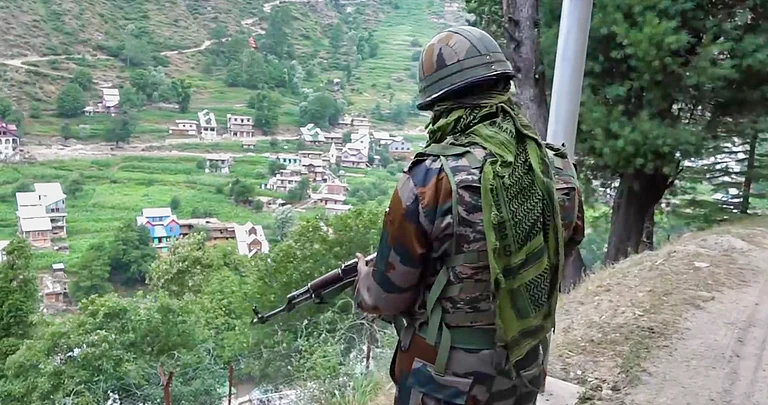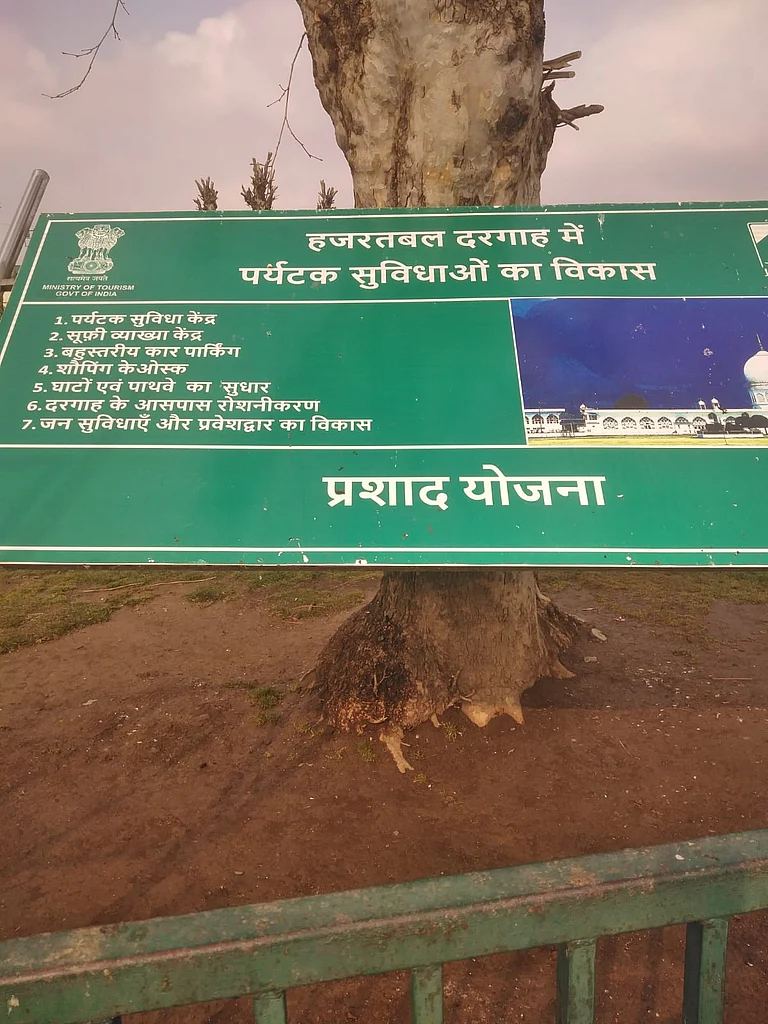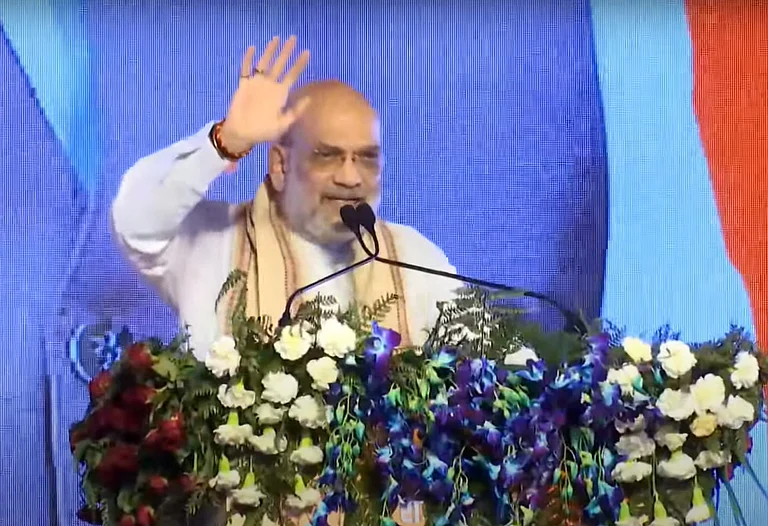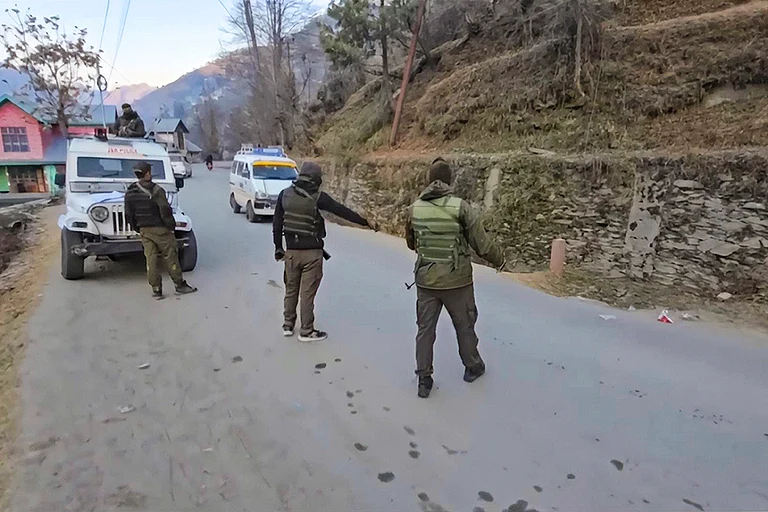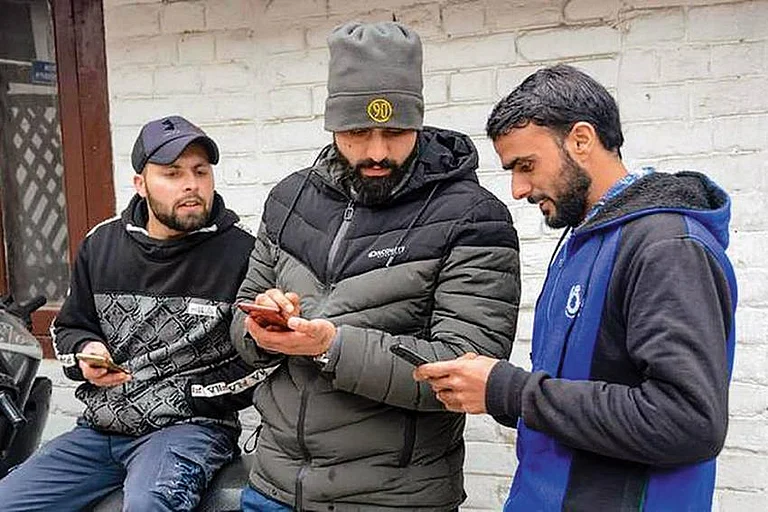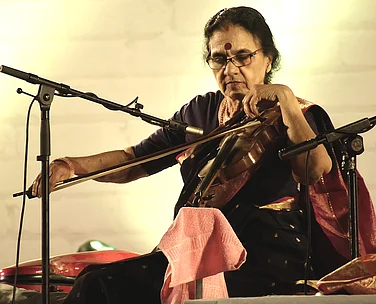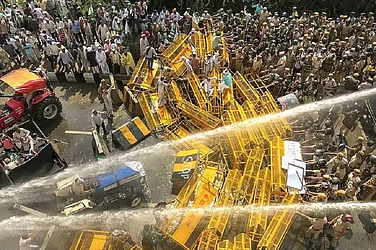With intensified security operations in the jungles and high mountains of the Jammu region, experts warn of a dangerous game unfolding. Since the abrogation of Article 370 on August 5, 2019, the government and security agencies have largely focused on Kashmir, declaring militancy dead and promoting it as a haven for tourism. The government has been touting rising tourist arrivals as proof of peace.
While the government was happy with Kashmir's success, the incidents in Jammu over the past three years, once seen as sporadic, slowly escalated. Unlike in the past, militants are increasingly appearing in the mountains, inflicting casualties on security forces and then move from one area to another.
On Thursday morning, gunfire erupted during a gunfight with militants in the Kastigarh area, around two hours from Doda town, injuring two army soldiers. It is suspected that the militants involved in attacks four days ago in the Desa area may have crossed over to Kastigarh. This mountainous area serves as a crucial link between the Kashmir Valley and the Srinagar-Jammu National Highway.
On Monday night, four Army soldiers, including a Captain, were killed in an encounter with militants in the Koti forests of the Desa area in Doda. The soldiers identified were Captain Brijesh Thapa, Naik D Rajesh, Sepoy Bijendra, and Sepoy Ajay Kumar Singh from Rashtriya Rifles. Since then patrols have been increased in the region.
Since the June 9 attack on a bus carrying Shiv Kohri pilgrims in the Reasi district of Jammu, the region has witnessed an escalation in terror incidents. The vast region spanning Reasi, Kathua, and Doda having thick forest line has experienced several encounters leading to the deaths of at least 10 security personnel and injuries to several others, in the last few months.
On June 9, as Prime Minister Narendra Modi was about to take oath of office, militants attacked a bus carrying pilgrims in the Reasi area of Jammu. The attack killed nine pilgrims and wounded 31 others. Local BJP leader Shamsher Singh told Outlook in Ransoo, where the incident took place, "Had the driver stopped the bus, the terrorists would have killed all the pilgrims." He adds that such incidents have instilled fear across the Jammu region.
Luv Puri, who has worked with the UN Office for Counter Terrorism, and authored two books on J&K tells Outlook that “militancy or terrorism anywhere in the world cannot be divorced from its granular local context.”
“In this context, the additional presence of troops (or some will say unsustainable) in Kashmir valley since 5 August 2019 has shored up local intelligence that has enabled relatively quiet consecutive summers in the valley and an end to stone-pelting. But that doesn’t mean attacks have stopped and recruitment has ebbed in the valley,” he adds.
He says in 2022, there were targeted assassinations thus indicating that at any given opportunity militants will strike their targets.
However, what has alarmed the security establishment are the attacks outside the valley which are taking place in areas that were not affected by militancy in the past.
Puri says militancy to the south of Pir Panjal has always been characterized by shock and awe tactics. “Topography, mixed demographics, linguistic affinity with Pakistani Punjab and closeness to the Pakistan frontier make it distinct from the valley. There is a pattern of definite increase since the last quarter of 2021 as compared to immediate years in the pre-2019 phase. Before the 2024 verdict, the ruling BJP with its majority and its claim of zero tolerance towards terrorism such incidents pertaining to national security were not highlighted,” he adds.
Puri says the political context has changed and with a stronger opposition, these incidents are gaining attention though the theatre has expanded beyond Rajouri-Poonch.
“At the same time, media penetration and understanding of militancy in areas to the south of Pir Panjal, has always been patchy and poor as a lot more rigour is required to understand the vectors that have bred militancy in these areas. For instance, as the nation was preoccupied with the elections, my local sources and collation of reports from the ground in border areas were already indicating that in the April-May season, high infiltration is taking place,” Puri adds.
On May 6, 2024, militants ambushed an Air Force (IAF) convoy near Shahsitar in Poonch district, resulting in the death of an IAF personnel. The attackers used US-made M4 rifles and AK-47s.
On June 11, militants fired on a joint checkpost of the 4 Rashtriya Rifles and police at Chattergalla in Bhaderwah, Doda district. The next day, a search party in Gandoh, also in Doda district and bordering Himachal Pradesh, was attacked, resulting in injuries to seven security personnel, including a policeman. Later, in an overnight gun battle on June 12 in Kathua, security forces killed two militants, but a CRPF jawan was also killed in the exchange.
Ravinder Sharma, a spokesman of the Congress party in J&K, says that the BJP government has failed to curb terrorism and it should restore statehood and conduct elections in Jammu and Kashmir. Congress party leaders also took out a protest on Thursday in Jammu against the attacks. “The BJP government would always claim they would bring normalcy in Kashmir. But after 2019, what we see the terrorism that was finished by the Congress government, it has now returned in Jammu,” the Congress leader says, seeking restoration of democracy and statehood in Jammu and Kashmir. “The way terrorism is increasing, it is a matter of concern. Both the LG government in J&K and the NDA government have failed to counter it,” he adds.
After Monday's attack, Lieutenant Governor Manoj Sinha, stated, “We will avenge the death of our soldiers and thwart the evil designs of terrorists and their associates.”
“I call upon the people to unite in the fight against terrorism and provide us accurate information so that we can intensify anti-terror operations and neutralise the terror ecosystem,” he added.
However, former Chief Minister Omar Abdullah says militant incidents have been taking place in the Jammu region for the past few years. He says no region of Jammu has remained immune to the militant attacks and in the past three years around 55 security forces personnel were killed. “After every attack, the government says the militancy is at its last leg but we don’t see it happening. We don’t know how they see the militancy is on its last leg when the incidents are taking place frequently,” he added.
As the police and security forces have recovered American-made weapons like M4 carbines from separate encounter sites in Jammu, officials are talking about a much bigger game in the region stating that the supply of weapons from Afghanistan to Pakistan that has reached Jammu is posing a next level challenge for security forces. An official says that since 2021, when the first encounter took place in Poonch, weapon composition lying with militants have changed.
On October 11, 2021, five army soldiers, including a JCO, were killed in an encounter with militants in the Chamrer forests of Surankote tehsil, Poonch district. Five days later, on October 16, 2021, another four soldiers, including a JCO, were killed in a gun battle with the same group of militants in Bhatta Durrian, Mendhar tehsil, Poonch. The search operation continued for a month in the jungle after the encounter.
There are reports that the militants used American-made M4 carbine assault rifles in the last week's attack in Kathua. These weapons have also been seen in previous gun battles in Doda, Poonch, and Rajouri. Security agencies suspect that these rifles, left behind by the US Army after their 2021 withdrawal from Afghanistan, have made their way to J&K and are “now being used by terrorists targeting civilians and security personnel.”
“While militancy never disappeared, there is conjecture floating around that may be worth exploring. In the last few years, a number of terrorists operating from Pakistan and wanted by the Indian state have been the subject of mysterious killings. Some sections of Indian media have highlighted them as the handiwork of Indian agencies. A sudden spurt and specific ambushes by militants that have led to fatalities of our young men in this regard may be a reaction to these claims,” says Puri.
Jai Sidh Bhalla, a Youth Congress leader from Jammu, says that a strong opposition has made the government more accountable but that is not enough. “It must end,” he adds.
Bhalla says the recent attacks across Jammu have terrified people. "There is fear among those who want to visit Doda or Rajouri. This has never happened before," he adds. He says during previous Congress governments, if such incidents occurred, the party would take responsibility and seek accountability. "The Congress would apologize. They don’t even apologize now," he says.







